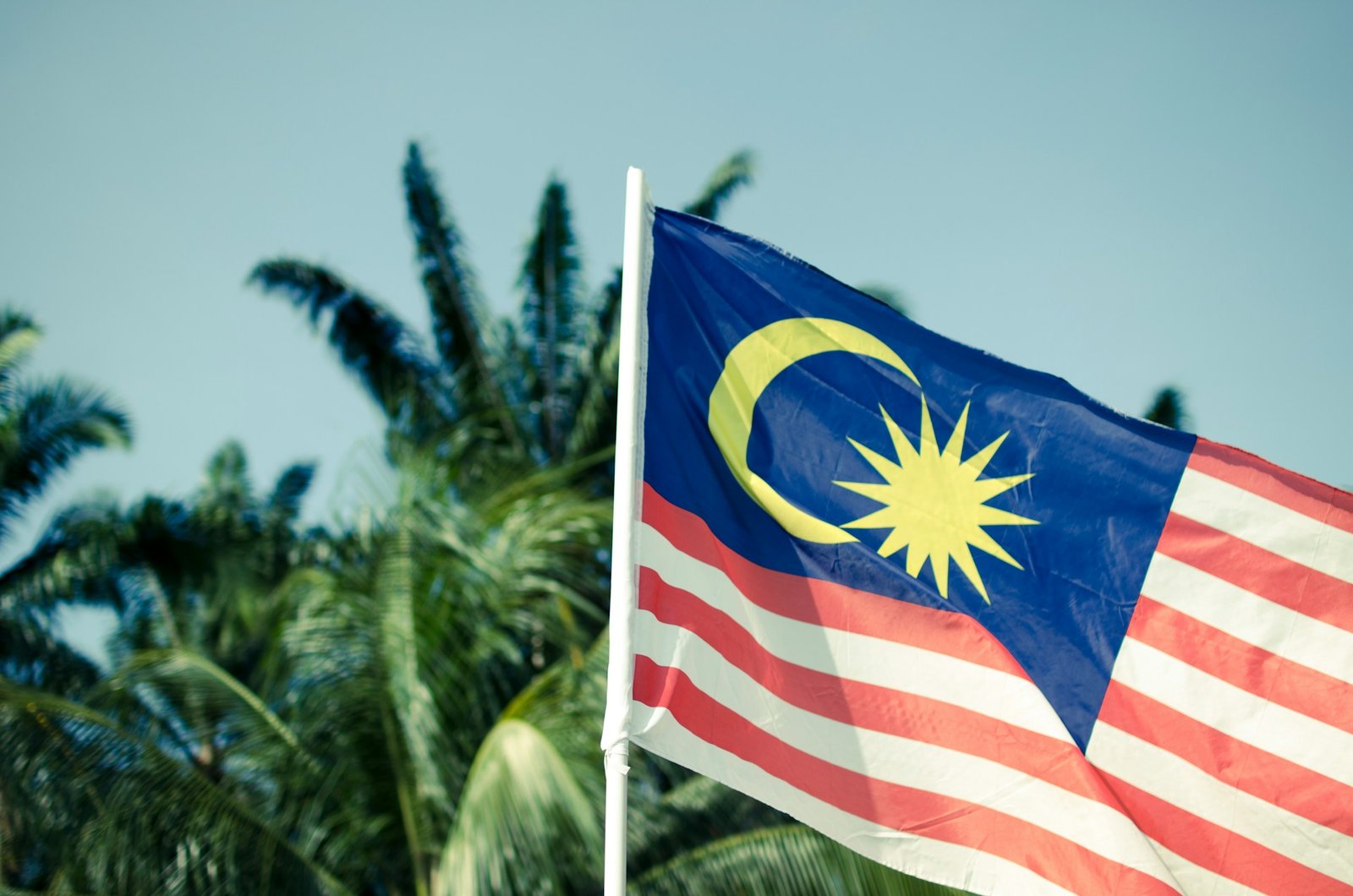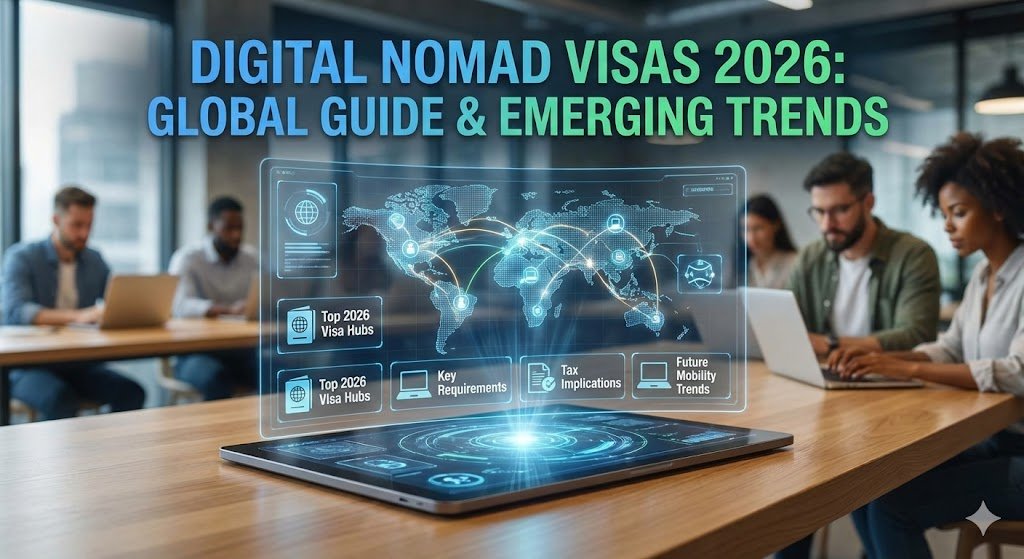Imagine coding from a beachfront coworking hub in Penang, editing videos in Kuala Lumpur’s vibrant lofts, or brainstorming with nomads in Kota Kinabalu’s cafes—all while enjoying a visa tailored for remote work. Malaysia’s DE Rantau Nomad Pass, launched in 2022, is a top trend for digital nomads in 2025, with 40 million nomads globally seeking flexible residencies. DE Rantau targets remote workers and freelancers. This guide explores the pass’s benefits, application process, and why Malaysia is a nomad paradise. Ready to make Malaysia your 2025 base? Let’s dive in!
Why DE Rantau Pass Excites Nomads
Malaysia’s appeal lies in its affordability, high-speed internet, and nomad-friendly policies. Digital nomads, from designers in Penang to marketers in Kuala Lumpur, typically spend $300–$800 monthly on short-term rentals. The DE Rantau Pass offers a 3–12-month stay (extendable to 24 months), slashing visa run costs by 30%. A nomad in Kota Kinabalu shared on X earning $3,000 monthly with the pass’s flexibility. With 85% of Malaysia’s coworking hubs providing 100 Mbps Wi-Fi, 2025 is prime for nomads to thrive here.
What is the DE Rantau Nomad Pass?
The DE Rantau Nomad Pass, managed by the Malaysia Digital Economy Corporation (MDEC), is a visa for digital nomads, remote workers, and freelancers. It allows stays of 3–12 months, extendable once, and is part of Malaysia’s push to attract 50,000 nomads by 2027, according to Malaysia.gov.my. Unlike Malaysia My Second Home MM2H 2025, which requires significant investments, DE Rantau focuses on remote professionals with modest income thresholds. Its key features include a low application fee of 1,000 MYR (~$230 USD) for individuals, no local work permit needed for remote jobs, and access to DE Rantau hubs like Penang’s @CAT. Nomads benefit from Malaysia’s tax exemptions on foreign income, making it ideal for those earning $2,000–$5,000 monthly.
Who Can Apply?
The DE Rantau Pass is designed for remote workers with straightforward eligibility criteria. Applicants need a valid passport and proof of remote work, such as freelance contracts or an employer letter. A minimum income of $24,000 USD annually is required, achievable for most nomads on platforms like Upwork. Dependents (spouses and children under 21) can join for an additional 500 MYR (~$115 USD) each, with optional health insurance of $50,000 USD coverage. Unlike some ASEAN visas, there are no restricted nationalities, though a clean criminal record is mandatory. In 2025, MDEC relaxed rules, allowing part-time freelancers to qualify with diversified income proof.
How to Get the DE Rantau Pass
Applying for the DE Rantau Pass is simple via the official portal at https://derantau.mdec.my/. Start by registering online, which takes 10 minutes, and upload documents like your passport, contracts, and bank statements, requiring about an hour. Pay the 1,000 MYR fee (~$230 USD) upon submission. MDEC processes applications in 4–6 weeks, with 80% approved on first try. Once approved, collect your visa at a Malaysian embassy or consulate, a 30-minute process. For smooth applications, double-check documents using MDEC’s checklist to avoid delays, especially for dependents.
Top Nomad Hubs in Malaysia
Penang’s George Town is a nomad favorite, blending heritage with modern coworking. For $800 USD monthly, you’ll enjoy 120 Mbps Wi-Fi at @CAT Penang ($10 USD/day) and affordable rentals in Tanjung Bungah ($300 USD/month). Nomads here earn $2,500 monthly, leveraging weekly meetups. Kuala Lumpur’s Bangsar offers urban energy for $1,000 USD monthly, with Common Ground coworking ($12 USD/day) and 150 Mbps Wi-Fi. Marketers thrive here, securing $3,200 monthly gigs. Kota Kinabalu in Sabah, at $700 USD monthly, provides beachside vibes and The CoWorking Space ($8 USD/day), ideal for writers earning $2,000 monthly. Langkawi’s island charm, costing $900 USD monthly, pairs with Workmode ($9 USD/day) for designers making $2,300 monthly. Johor Bahru, near Singapore, offers $850 USD monthly living and WorkAwesome ($10 USD/day), supporting developers at $2,800 monthly.
Essential Tools for DE Rantau Nomads
To maximize productivity, nomads rely on cost-effective tools. Wise handles banking with 0.4% exchange fees, saving $100 yearly. NomadSIM offers 6GB data for $12 monthly, ensuring connectivity. Notion organizes projects for free, while SafetyWing provides insurance at $45 monthly. Skyscanner finds budget flights, cutting $150 yearly. These tools keep nomads efficient across Malaysia’s hubs, from Penang to Johor Bahru.
Practical Use Cases
A Penang designer uses the DE Rantau Pass to stay 12 months, paying $800 USD monthly and earning $2,500 at @CAT Penang. A Kuala Lumpur marketer extends their pass to 24 months, securing $3,200 monthly at Common Ground with Wise for payments. In Kota Kinabalu, a writer leverages the pass’s flexibility for $2,000 monthly gigs, using NomadSIM for remote calls. A Langkawi freelancer earns $2,300 monthly at Workmode, relying on SafetyWing for coverage. A Johor Bahru developer scales to $2,800 monthly at WorkAwesome, booking flights via Skyscanner.
Financial Snapshot
- DE Rantau Pass: $230 USD (individual), $115 USD/dependent.
- Living Costs: $700–$1,000 USD/month.
- Tools: $45 USD/month (insurance), $12 USD/month (NomadSIM).
- Savings: $300 USD/year (no visa runs), $100 USD/year (Wise).
- Total Budget: $800–$1,500 USD/month (first year).
Challenges and Solutions
High living costs in Kuala Lumpur can strain budgets, but Kota Kinabalu’s $700 USD monthly keeps expenses low. Application delays affect 20%, so submit early via https://derantau.mdec.my/. Wi-Fi issues in rural Langkawi are mitigated with NomadSIM. Income proof confuses 15% of freelancers, but Upwork statements clarify eligibility. Networking can feel sparse in Johor Bahru, so join MDEC’s nomad events to connect.
Start Your DE Rantau Journey
Begin by exploring https://derantau.mdec.my/ for 30 minutes to understand requirements. Open a Wise account in 10 minutes for banking, and secure NomadSIM in 5 minutes for data. Set up Notion in 15 minutes to organize, then enroll in SafetyWing insurance in 10 minutes. Apply for the pass in an hour, and book a coworking spot like @CAT Penang ($10 USD/day). Your Malaysian nomad adventure is ready to launch.
Conclusion
The DE Rantau Pass is a nomad’s ticket to Malaysia’s vibrant hubs, from Penang’s heritage to Kuala Lumpur’s buzz. For $800–$1,500 USD monthly, you’ll save $300 yearly and thrive. Start with MDEC’s portal, grab SafetyWing, and settle into @CAT Penang. DE Rantau is your path to a flexible, remote work haven in 2025!







